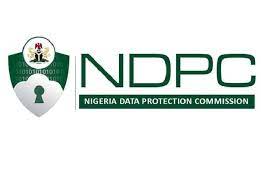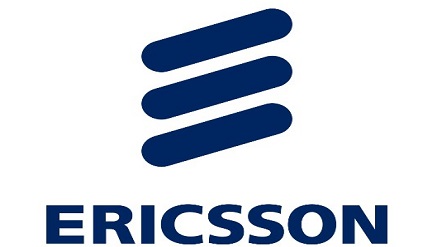Telecom
New-Gen Site Technology: Unleashing Potential of Pole Sites to Support MBB Growth
By peter oluka
Mobile Broadband (MBB) is developing rapidly across the world, especially in urban areas.
In this new era, wireless networks will require many small cells across a city to ensure a better user experience, improve network performance, and prepare for 5G-oriented evolution in the future.
This requires telecom operators to shift from pure macro cell towers, which are hundreds of feet tall and transmit wireless signals for miles, to embracing multi-layer networks that enable small cells from virtually any site such as street lamps, utility poles and traffic lights.
Market insights indicate that enormous resources are available around the globe for site deployment, including approximately 1 billion power and street light poles, 100 million monitoring and transmission poles, 10 million phone booths, and 10 million billboards.
Most of these poles already have the core elements required to deploy a site, such as power and transmission resources, and right of way (ROW), making them ideal site locations
It is estimated that the number of outdoor pole sites will exceed the number of traditional tower sites by 2020, and outdoor pole sites will become the mainstream option for the intermediate network layer.
In fact, according to ABI Research, over the next five years pole site usage is expected to grow by 26% per annum.
Challenges To Acquiring And Developing New Sites
The benefits of pole sites are recognized by operators and many are gaining access to sites through third-parties that have already-approved sites.
However, there are still significant obstacles in terms finding appropriate sites, obtaining permits and meeting regulations which have long approval cycles, and high rental fees.
For example, in South Africa the average site approval includes leasing negotiations, aviation approval, environmental approval, government approval, and many other links.
The approval cycle takes up to 6 months and the average success rate is only 30%. Traditional site construction takes at least one month and civil engineering costs account for nearly 50% of the total site construction costs which can impact the operators’ investment in equipment and network supply capacity.
Reducing Site Costs And Increasing Efficiency To Enable MBB Growth
To help operators overcome these challenges and seize growth opportunities, Huawei’s approach is to help operator optimize total cost of operation, shorten ROI and enhance site efficiency.
Huawei has developed innovative scenario-specific solutions namely PoleStar, TubeStar, and RuralStar that enable more sites in a simple, fast and cost-efficient manner.
Huawei PoleStar is for urban areas and can be installed on lamp posts and a variety of other locations in a matter of hours.
Huawei TubeStar enables wireless devices to be embedded in light poles and are therefore environmentally friendly allowing operators to easily obtain permission for installation in sensitive areas.
Huawei RuralStar is useful in rural areas because it decreases power consumption by 85% and cost by 70%.
Huawei provides operators with a total solution package (including site acquisition, equipment supply, and delivery) which helps them find new site resources and reduces on-air time with a 40% TCO saving. Huawei has already applied this model with several African operators.
In South Africa a site alliance has been formed from cooperation between stakeholders, such as the government, businesses and operators. With a wealth of experience in network planning, Huawei is fully aware of the locations where sites must be added and provided valuable insight into which specific sites could be leased to multiple operators.
By deploying pole sites, South Africa MTN which operates in many African countries, hassaved$75K in construction costs for each single site, the site TTM is only 4-5 months, and the investment payback period for central urban areas is less than 1 year.
Given the large investment that operators are planning to make to improve connectivity over the coming years, they must build new sites to optimize network coverage and accommodate the sustained increase in MBB traffic.
Pole sites are an ideal solution to these challenges and by partnering with Huawei, operators can reduce site CAPEX and OPEX to enable efficient MBB networks that improve citizens’ lives, create jobs and increase economic competitiveness.
Telecom
Navigating the Path to Sustainable Telecom Services for Subscribers
By Dinesh Balshingh
As Nigeria continues its journey towards becoming a digitally driven economy, reliable telecommunications services remain the backbone of our collective progress. At Airtel Nigeria, we are committed to delivering world-class connectivity to millions of Nigerians, enabling economic growth, empowering businesses, and enhancing lives.

We understand that the future technology needs of the country, as ushered in by the highspeed 5G era of AI, Cloud computing, Data science applications, and Blockchain, should be directing significant investments towards building a resilient network. However, the industry faces significant challenges that require a closer look as we strive to maintain the high standards that our customers deserve.
Increased Intensity of Investments: The increasing demand for digital services across sectors such as education, media, banking, transportation, and manufacturing has come with an increased demand on telecom capacity.
Upgrading networks to deliver more data capacity is key to a sustainable future. To help ensure that the Nigerian economy keeps pace with the global improvements in technology and communications while supporting the aspirations of consumers, we also take on the responsibility of executing new technology and system upgrades as well as improved security. Data security is now more than ever a priority as more and more people upload personal information online.
All of these require significant investments which are sourced from the international markets at costs denominated in US Dollars. In the past three to four years, for instance, the dollar has gone from exchanging for about N500 to over N1,600.
This more than three-fold increase in foreign exchange conversion exponentially increases the cost of investments required to run a good quality network.
In addition to this unprecedented hike in capital expenditure, the operating costs have surged dramatically, with operating expenses rising by over 300% in the last 18 to 24 months alone.
While several critical areas of the business are impacted, I would, for expediency, focus on three of those areas: Rising Energy Cost, Infrastructure Challenges, and a Commitment to Quality Service.
Rising Energy Costs: Powering telecommunication infrastructure requires significant energy resources. Energy is the single largest operating cost for running a network. With increasing global energy prices and while efforts are ongoing to fully stabilize power supply in Nigeria, Airtel Nigeria and other operators in the sector are incurring soaring costs to keep networks running seamlessly.
Infrastructure Challenges: The industry continues to grapple with rampant fiber cuts and vandalization of critical infrastructure. These incidents not only disrupt services but also demand substantial investments to repair and maintain facilities.
Commitment to Quality Service: Despite these challenges, Airtel Nigeria has remained steadfast in ensuring quality of service. From expanding 4G and 5G networks to meeting growing demand in urban and rural areas, we have painstakingly absorbed the rising costs of these obligations to avoid compromising the customer experience and ensuring Nigerians, regardless of their location, have access to mobile communication and remain connected to the digital economy.
Telecommunications operators have worked tirelessly to sustain services despite keeping tariffs unchanged for the last 10 years. While tariffs have remained static for over a decade, the economic realities necessitate a review to ensure the sustainability of services hence our recent application to the government for tariff adjustment which if approved will be a step towards addressing this imbalance.
It is not a decision taken lightly but one borne out of the need to guarantee continued investment in network expansion, technology upgrades, and improved service delivery.
The telecommunications sector is pivotal to Nigeria’s ambition to become a digital economy leader in Africa. Meeting this aspiration requires operators to make substantial investments in network infrastructure, spectrum acquisition, and innovative solutions. These investments come at a cost, one that must be shared proportionally to ensure long-term viability.
At Airtel Nigeria, we remain resolute in our commitment to:
Delivering Quality Services: As the government continues to monitor operators’ compliance with service quality standards. Airtel is dedicated to surpassing these benchmarks, ensuring customers experience uninterrupted and superior connectivity.
Driving Economic Growth: By expanding our network and enhancing digital inclusivity, we are enabling the government’s economy turnaround agenda and fostering opportunities for all Nigerians.
Being a Reliable Partner: Despite industry challenges, we are steadfast in our role as a trusted partner in Nigeria’s digital transformation journey.
While significant tariff adjustments have become warranted for the sustainability of the industry, Airtel has always been sensitive to affordability and understand that the price adjustments must be done gradually to support our customers’ financial positions.
“We believe that an approval of revised tariffs will empower operators to invest in capacity, expand coverage to underserved areas, aim for advanced security on the networks, and improve service quality and network availability while ensuring that Nigeria remains competitive in the global digital landscape.
As we navigate the present imperatives together, we urge all stakeholders, including customers, regulators, and partners to recognize the importance of building a resilient telecommunications ecosystem. Airtel Nigeria remains committed to delivering unmatched value while supporting the nation’s economic development.
Dinesh Balsingh is the Managing Director/CEO of Airtel Nigeria.
Telecom
Data breaches: Commission warns banks, hospitals, others against infractions
Nigeria Data Protection Commission (NDPC) has issued a strong warning to institutions and organizations found mishandling citizens’ data, promising to impose maximum penalties on violators as part of an effort to strengthen enforcement in 2025.

National Commissioner and Chief Executive Officer, Dr. Vincent Olatunji, emphasized the importance of safeguarding data integrity and assured that the Commission will enhance its enforcement mechanisms to hold accountable sectors such as banking, healthcare, education, insurance, telecommunications, and government agencies.
In a statement released by the Commission’s Media Department, Dr. Olatunji urged data controllers and processors to prioritize data security, warning that the NDPC’s tolerance for breaches will be minimal.
He stressed that while the Commission had previously refrained from issuing fines, there would be significant penalties moving forward for those failing to comply with data protection regulations.
The NDPC’s increased focus on enforcement aims to protect the data rights of Nigerians as guaranteed by the Nigeria Data Protection Act (NDPA).
Dr. Olatunji highlighted the Commission’s ongoing engagements with public and private stakeholders to foster awareness and compliance, underscoring that these efforts have led to the signing of Memorandums of Understanding (MOUs) with key organizations such as the National Insurance Commission (NAICOM), the National Lottery Regulatory Commission (NLRC), the Data Privacy Office of Canada, and the Dubai International Financial Centre Authority (DIFC).
Telecom
Subscriber Group Rejects Telcos Push for Tariff Hike
National Association of Telecoms Subscribers (NATCOMS), a telecoms subscriber body, has warned Nigerian Communications Commission (NCC) not accede to demands by telecommunications companies in the country to hike tariff, insisting that such increase would unleash further hardships on its members.

Chief Deolu Ogunbanjo, president, NATCOMS said in statement that the group in a recent emergency meeting over the planned tariff hike of telecommunication services, unanimously voted against any tariff hike.
Ogunbanjo, said telecoms services are taxable services under the Value Added Tax Act.
The Act was amended in 2019 by the Finance Act of that year to raise the tax rate from five per cent to 7.5per cent which was 50per cent increment and the increment has been borne by the consumers of rateable telecom services.
“That increment brought about untold hardship to our members many of who have been forced to cut back on their telecom requirements.
“As if that was not bad enough, the Federal Government got the National Assembly to enact the Finance Act of 2020. Section 37 of the Act amended Section 21 of the Customs, Excise Tariff etc. (Consolidation) Act by imposing an excise duty charge on Telecommunication Services. The then president, President Muhammadu Buhari by an order prescribed five per cent as the rate of the excise duty charge, chargeable for telecommunication services. The additional tax burden was greeted with public outcry and this association, at the prompting of our members, challenged the excise duty charge in court, in the case of Registered Trustees of National Association of Telecommunications Subscribers (NATCOMS) V MTN Nigeria Communications Limited and Others – Suit No: FHC/L/ CS / 189) 2023 on the ground of double taxation which is illegal and unconstitutional.
NCC and other Federal Bodies are parties to the suit and the Federal Government as represented by the Federal Inland Revenue Service (FIRS) entered an appearance and filed processes opposing the suit. The case is now pending before Hon. Justice Aluko, sitting at the Lagos Division of the Federal High Court, and the case is slated to come up in the court on the 13th March, 2025,” Ogunbanjo said.

 E-Business1 day ago
E-Business1 day agoA beginner’s guide to Temu: Your ultimate shopping companion

 E-Financial1 day ago
E-Financial1 day agoCBN did not Force 1000 Workers to Resign- Cardoso

 E-Financial1 day ago
E-Financial1 day agoBankit MFB Unveils Web Banking Platform

 Telecom1 day ago
Telecom1 day agoNavigating the Path to Sustainable Telecom Services for Subscribers

 Telecom3 days ago
Telecom3 days agoTelcos Threaten to Shut Down Services in Some Parts of Nigeria over Tariff
- Telecom2 days ago
Subscriber Group Rejects Telcos Push for Tariff Hike

 Telecom1 day ago
Telecom1 day agoData breaches: Commission warns banks, hospitals, others against infractions

 E-Financial1 day ago
E-Financial1 day agoWorld Bank Okays $1.5Bn Loan to Nigeria in Support of Tax Bills
















